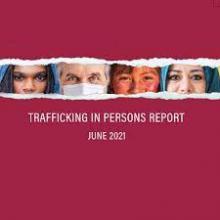Multinational Investigation Widens into Haiti Assassination, Including Who Bankrolled It
The investigation into the assassination of Haitian Presien Jovenal Moise has broadened to include law enforcement in both Haiti and South Florida, including finding those who provided logistical and/or financial support. Part of the investigation is being carried out in Colombia given the significant role of hired Colombian mercenaries, both in custody and at large. The full article by Miami Herald journalists Kevin Hall, Jacqueline Charles, and Jay Weaver follows.












